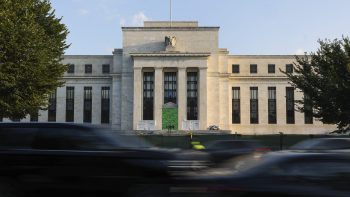Disaster aid gets caught up in deficit debate
Kai Ryssdal: There are 132 people officially listed as dead after the tornado in Joplin, Mo., this week. About that many still missing. Thousands homeless; an estimated $3 billion in damage.
Naturally, the federal government steps in with emergency aid. But how to pay for it? Well, in this case, the House decided to cut research on low-emissions vehicles.
Marketplace’s Jeff Horwich reports now that Joplin is a test case for those who want to stop adding to the deficit when disaster strikes.
Jeff Horwich: Traditionally, the federal government provides relief funds for our biggest disasters the same way we often end up paying for wars like Iraq and Afghanistan: We borrow. But many Republicans moving a $1 billion package for Joplin through Congress want to cut spending elsewhere to offset the cost.
Ken Burris is a former chief operating officer of FEMA, the Federal Emergency Management Agency.
Ken Burris: I understand the reason behind the offsetting. You can’t keep going down the pathway of just amassing debt at the national level.
Many Republicans want to make offsets the standard practice. The prospect of disaster aid waiting for politicians to debate spending cuts doesn’t sit well with people like Tim Rich, executive director of The Heart of Missouri United Way.
Tim Rich: I tend to be pretty conservative from a fiscal standpoint. But the reality is, when you’re holding people whose lives have been devastated hostage, due to politics, that is morally wrong.
Former FEMA official Ken Burris says immediate aid for an event like Joplin would not be held up. It would still flow from the agency’s established Disaster Relief Fund — currently at about $2.4 billion. But he says long-term investments that fund is supposed to make — for this and previous disasters — would slide down or off the priority list.
Burris: They may delay that payment in order to maintain their response capabilities — you only have so much in that account.
Some experts say there’s another option: give FEMA more money to begin with, so we’re actually ready for the next Joplin-scale disaster.
I’m Jeff Horwich for Marketplace.
There’s a lot happening in the world. Through it all, Marketplace is here for you.
You rely on Marketplace to break down the world’s events and tell you how it affects you in a fact-based, approachable way. We rely on your financial support to keep making that possible.
Your donation today powers the independent journalism that you rely on. For just $5/month, you can help sustain Marketplace so we can keep reporting on the things that matter to you.


















